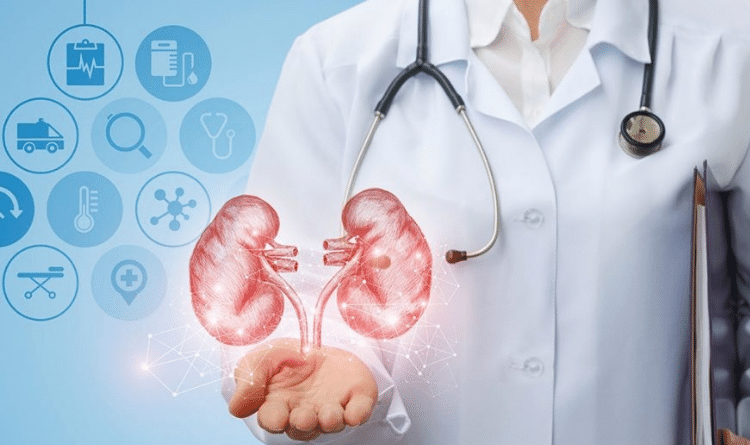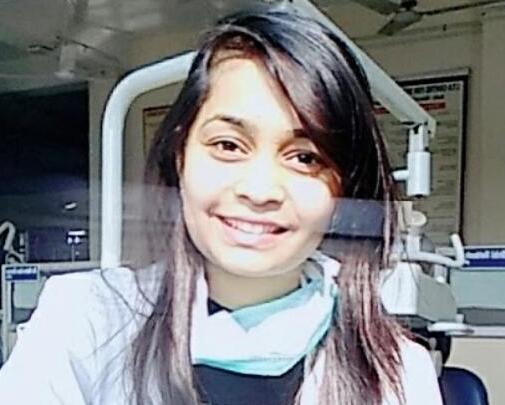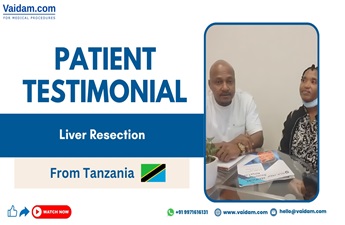
Diabetic kidney disease (DKD), also referred to as diabetic nephropathy, is a complication of diabetes. DKD is the primary cause of end-stage renal disease. It is a microvascular complication associated with diabetes mellitus type 1 and type 2.
Diabetes is known to affect 537 million people worldwide. Diabetic people are more prone to chronic conditions such as high cholesterol, atherosclerosis, etc. They are also more likely to have other renal problems like bladder nerve damage or infection in the bladder.
When diagnosed in its early stages, diabetic nephropathy can be easily managed and even reversed. However, it has no prominent signs and symptoms in stage 1 or 2, making it difficult to diagnose.
Get in Touch with Medical Experts
What is Diabetic Nephropathy?
Diabetic nephropathy is a kidney-related disorder that occurs as a complication of diabetes mellitus. This is one of the significant causes of kidney failure.
The condition gradually reduces the ability of the kidneys to perform their regular function of removing waste products and fluids from the body. If the condition continues for a long time, the filtration system gets entirely damaged. Early treatment can prevent complications.
Diabetic kidney disease occurring due to type 1 diabetes and type 2 diabetes are slightly different. In the former, the symptoms start in the first ten years after diagnosis of diabetes, while in the latter, the patients have kidney damage even before they get diagnosed.
What are the Signs and Symptoms of Diabetic Nephropathy?

Diabetic nephropathy does not show any symptoms when it is in the early stages. However, you can observe the following signs and symptoms as the disease progresses.
- Swelling of the hands, feet, and face
- Difficulty sleeping
- Fatigue
- Itching
- Uncontrolled blood pressure
- Urinary frequency
- Inability to concentrate
- Poor appetite
- Muscle twitching
- Drowsiness
- Protein in the urine
- Metallic taste
- Change in the color of urine
What is the Main Cause of Diabetic Nephropathy?
The leading cause of diabetic nephropathy is known to be high blood pressure or hypertension. If you have uncontrolled hypertension, you quickly progress toward fifth-stage diabetic nephropathy.
And as the name suggests, diabetes is another major cause of the disease. A recent study shows around 20 to 30% of all diabetic patients will progress to nephropathy. High blood pressure and sugar cause kidneys to slowly thicken over time and become scarred. Nephrons become leaky, allowing albumin to pass freely into the urine.
How Does Diabetes Mellitus Cause Damage to the Kidneys?
The kidney comprises several minute blood vessels that help in the filtration of waste products. Any damage to these blood vessels can lead to diabetic nephropathy or kidney failure. In people with high blood sugar levels associated with untreated diabetes, there is increased blood pressure. This causes severe kidney damage by elevating the pressure in the filtration system.
What are the Stages of Diabetic Nephropathy?
The stages of diabetic nephropathy depend on the glomerular filtration rate and damage to the kidneys. The glomerular filtration rate is a measure to check kidney function. A low GFR indicates kidney issues. Depending upon the amount of kidney damage, diabetic nephropathy is of the following types:
- Stage 1 - Minor kidney damage, but kidney function is normal. GFR is above 90.
- Stage 2 - Significant kidney damage with some loss of kidney function. GFR is between 60 and 89.
- Stage 3 - Marked by mild to severe loss of kidney function with GFR between 30 and 59.
- Stage 4 - GFR between 15 to 29 with severe loss of kidney function.
- Stage 5 - Kidney failure with GFR less than 15.
Which Stage of Diabetic Nephropathy is Reversible?
Diabetic nephropathy was considered irreversible a few years back. But the latest studies show that it is not true anymore. Early-stage diabetic nephropathy can be reversed by following a few simple steps. These include keeping blood sugar and blood pressure under control, eating a low-salt diet, quitting smoking, limiting alcohol, and keeping a check on cholesterol levels.
How is Diabetic Nephropathy Diagnosed?
After you notice the above-mentioned signs and symptoms, you must visit a nephrologist. The nephrologist will take a detailed case history in which you must inform the doctor about any past illnesses or any family history that you may have. This is followed by a clinical examination that comprises the following tests:
- Blood sample tests - This is done to analyze the condition of kidney function.
- Urine tests - These tests are done to know the amount of protein present in the urine. High levels of a protein known as microalbumin indicate severe damage to kidney function.
- Radio-imaging - Radiology tests such as X-rays and ultrasound examine the size, shape, and internal structure. The doctor may also recommend a CT or MRI scan to check the blood circulation in the kidneys.
- Renal function test - This test is done to see the filtration capacity of the kidneys using renal analysis testing.
- Kidney biopsy - The final test is a kidney biopsy in which a small portion of kidney tissue is removed after giving local anesthesia. After this, a thin needle is used to extract the cells to be later examined under the microscope.
What are the Treatment Methods Available for Diabetic Nephropathy?
The first step for treating diabetic nephropathy involves managing hypertension and diabetes mellitus. It can be achieved by maintaining a uniform weight, eating healthy food, and regular exercise.
- Medications: Prescribed medications are used to treat early-stage diabetic nephropathy. Your treating physician may prescribe the following medicines –
- ACE Inhibitors - Angiotensin-Converting enzyme Inhibitors such as benazepril, captopril, and enalapril are sometimes used to control blood pressure. However, these have several side effects; for example, they reduce GFR and cause kidney damage.
- Medications to reduce blood sugar levels - Lowering the increased blood sugar levels is the primary step to treating diabetic nephropathy. Efforts are made to achieve an average Hb A1C level of below 7.
- Statins - Cholesterol-lowering medications called statins are also used in people having high cholesterol levels and also reduce protein in the urine.
- Foster bone health - Deteriorating bones is a complication associated with diabetic nephropathy. Calcium and Vit. K medicines are usually prescribed to maintain bone health.
- Dialysis: This is a treatment done to remove waste excreta and fluids from the blood. Dialysis is of two major types - hemodialysis and peritoneal dialysis. Hemodialysis is more common and needs the patient to visit a dialysis center. It involves passing the blood through a machine that performs the function of filtering the waste. Peritoneal dialysis uses the peritoneum (inner lining of the stomach) as a filter rather than the machine. It can be performed at home.

- Kidney transplant: In extreme cases, a kidney transplant is the only option left. The surgery involves replacing a diseased kidney with a healthy one. Sometimes it can be combined with a pancreas transplant. Immunosuppressants are prescribed to reduce the rejection rate associated with the transplant surgery.
What Happens if Nephropathy is Not Treated?
As mentioned earlier, the kidney is a vital organ that removes excess waste and fluids from the body. In nephropathy, the function of the kidneys deteriorates. This causes dangerously high levels of electrolytes, fluid, and waste to build up in the body. Untreated diabetic nephropathy causes complications like anemia, weak bones, poor nutritional health, and nerve damage. The risk of cardiovascular diseases also increases with untreated DN.
Some of the Best Endocrinologists in India
India is home to some of the most experienced endocrinologists in the world. They are known for offering high-quality medical care at affordable rates. Some of the best doctors providing patient-centric care are:
- Dr. Rajendiran N is an Endocrinologist (Diabetologist) and a General Physician with a vast experience of 48 years.
- Dr. D Shantharam is a renowned Diabetologist who has been practicing for more than 20 years.
- Dr. Asim Siddiqui is an Endocrinologist (Diabetes Care) with over 26 years of experience.
- Dr. Pradeep Talwalkar is an eminent Endocrinologist with 35+ years of experience.
Takeaway
Diabetic nephropathy (DN) is a prime cause of mortality and morbidity in diabetic patients. With the increase in the cases of diabetes, the prevalence of DN has also increased significantly. The treatment focuses on managing raised blood pressure and sugar, mainly using medicines, dialysis, and lifestyle changes. However, if you are diagnosed with advance stage diabetic nephropathy, a kidney transplant might be the best option for you.





































